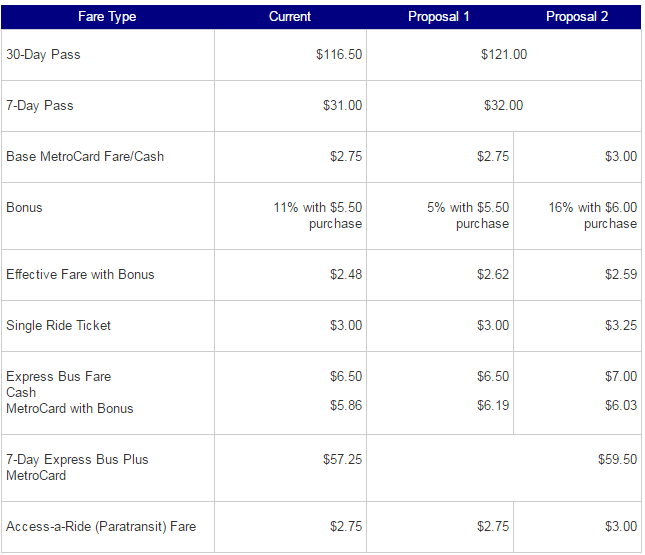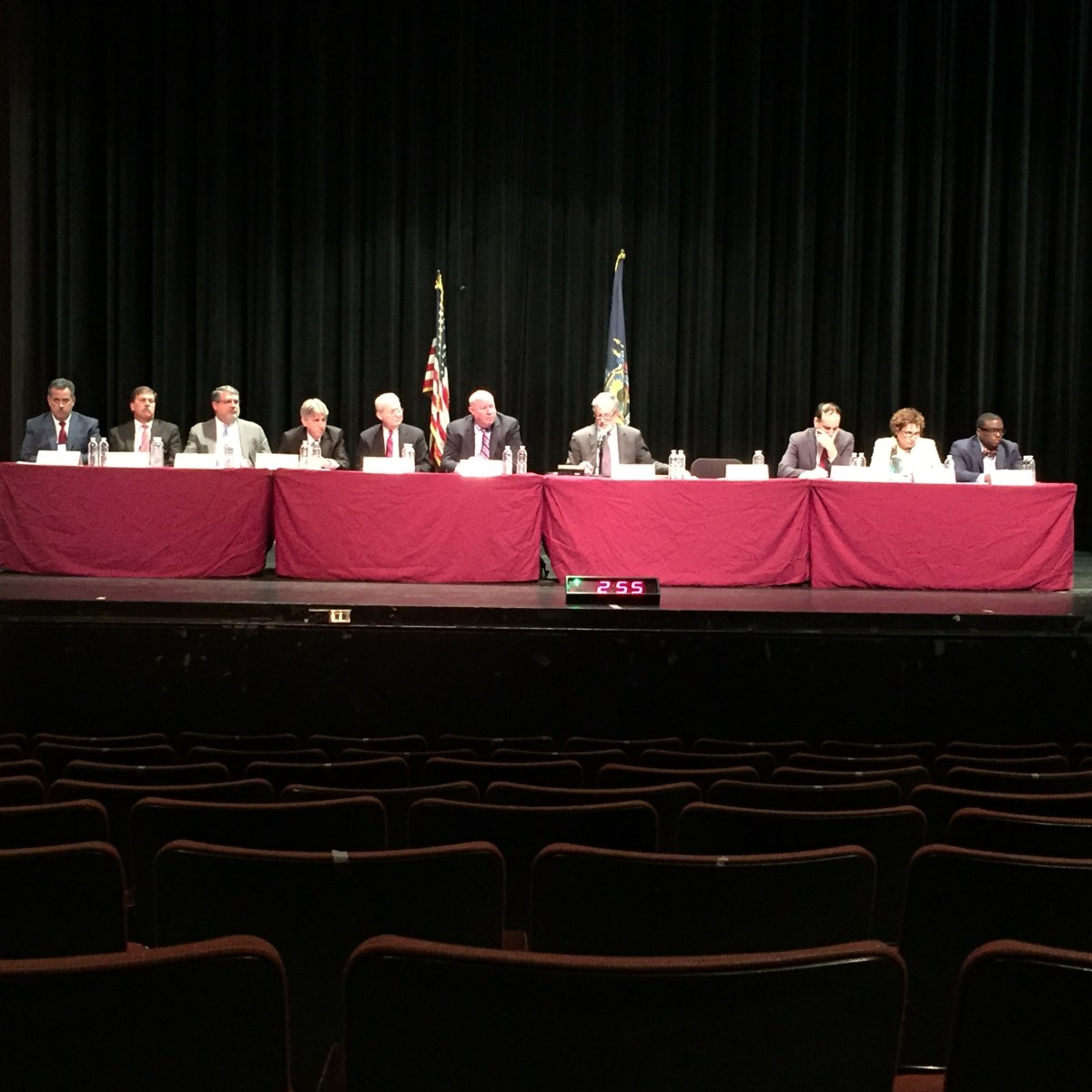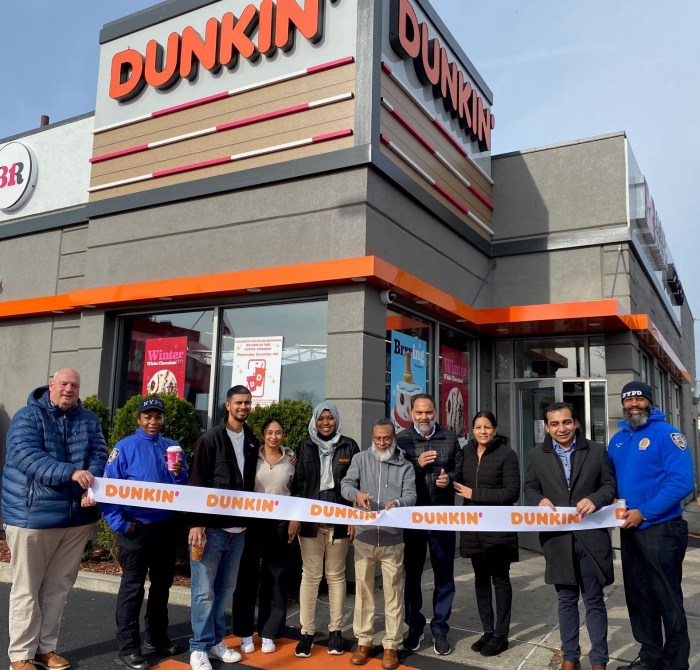MTA officials got an earful from Queens residents at York College in Jamaica on Monday, Dec. 5, during the first of several public hearings on proposed fare hikes that will go into effect on March 19, 2017.
The board, who is holding these hearings to decide which proposal to implement, listened to the concerns of Queens residents from 5 to 8 p.m. Though some Queens residents said they have come to terms with a fare hike, many expressed fear that the increase will burden already overwhelmed and low-income residents.
Others argued that subway and bus service in the borough is still not adequate at the current fare rates.
The first proposal would keep the base fare at $2.75 but would decrease the bonus riders get for putting $5.50 into their card to 5 percent. Currently, riders get an 11 percent bonus. The second proposal would hike up the base MetroCard fare to $3 and give riders a 16 percent bonus with a $6 MetroCard purchase.
A 30-day pass would rise to $121 from $116.50 and a seven-day pass would rise $1 to $32 for both proposals.

Gajtana Simonovski, a Forest Hills resident, said this hike will burden “cash-strapped” New Yorkers who cannot take advantage of monthly passes. She argued that the MTA should give half-price tickets to the city’s low-income residents.
“By making it harder for New Yorkers to use the subway and bus to get to work, to take their kids to school, to access healthcare and do almost everything you need to survive in New York, we further isolate poor communities and disadvantaged individuals,” she said. “Let’s make our turnstiles the entry point, not the barrier to upward mobility.”
In April, the Riders Alliance, Comptroller Scott Stringer and Public Advocate Letitia James launched a Fair Fares campaign to advocate for a program that would give 800,000 New Yorkers half-price MetroCards. Seattle and San Francisco have similar programs.
Gerard Bringmann, a member of the Long Island Rail Road Commuter Council, said the MTA “must address” several issues “to keep faith with riders.”
“The Long Island Rail Road runs through Queens but provides a relatively small amount of service for people in this borough,” Bringmann said. “Areas such as southeast Queens are relatively undeserved by transit but the Long Island Rail Road is not providing the service that these people need.”
Frederick Wells, a Laurelton resident, said he does not favor any of the proposals but especially does not want to see the second proposal implemented. Wells argued that many south Queens residents have to purchase a monthly pass primarily because they have to transfer to several buses and subways just for one trip.
“We really cannot afford a fair increase,” he said. “In Queens, we pretty much have the worst form of transit system laid out as possible. Many of us are forced to backtrack. People in Rosedale are forced to take three buses if they’re going from their house to Queensborough Community College [in Bayside].”
Wells proposed that low-income residents who have to make several transfers should have a base fare of $1.60 and only pay the full $2.75 if they have to make two bus transfers.
“How do you expect a person to want to do a trip to Queens if they see a fare increase plus knowing what they have to face to come in here?” he said.
Councilman I. Daneek Miller, who represents Jamaica, Springfield Gardens, Queens Village and other Queens neighborhoods that have inadequate service, said his time working as a New York City bus driver make him “uniquely qualified” to understand the need for transit funding.
“I hope you took public transportation,” he told the board. “I just left City Hall [to come to Jamaica] and it was a two-hour ride.”
He called District 27 “an extreme transportation desert” and argued that the MTA should support his commuter rail equity resolution. Miller introduced the resolution last April. If passed, it would make the price of a commuter rail within New York City the same price as a MetroCard. It would also allow for free transfers between commuter rail and subways and buses.
“We want to make sure [the fare hike] is done equitably,” he said. “We are certainly understanding of the needs to adequately fund the transit system but certainly we want to make sure we are given our fair share,” Miller said. “If the services are being delivered equitably throughout the city as these increases occur then we are not opposed, but if they are not going to benefit everyone then certainly we will be opposed to it.”
He also asked the MTA to fully fund the renovation of the Jamaica Depot, which is included in the MTA’s Capital Program. The depot has been operating at “75 percent capacity necessary to service this community,” he said.
The MTA will vote on a proposal at their January board meeting and will hold public hearings throughout the remaining boroughs before then.



































